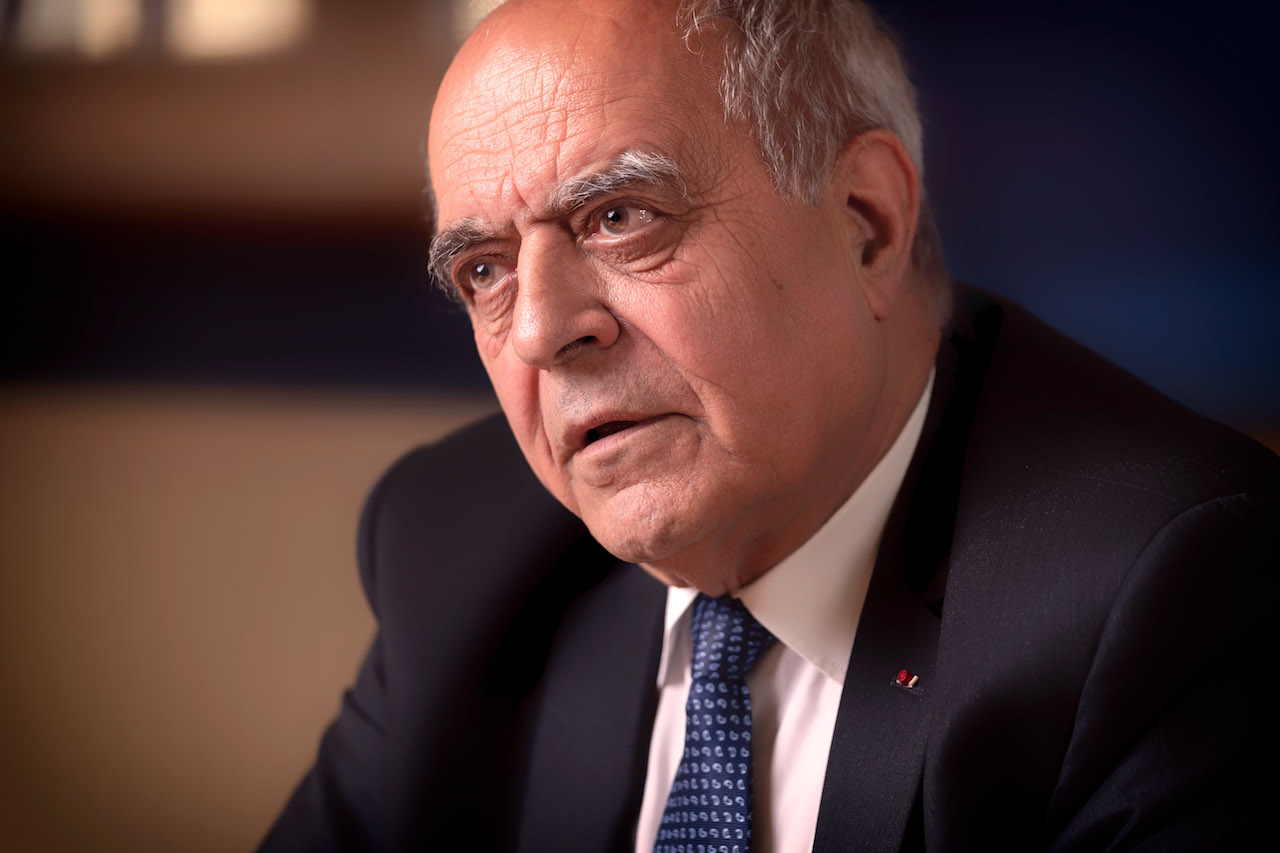 Aerospace and Defense Actors
Aerospace and Defense ActorsBy simply listening to this expression, we get to the heart of the matter … A secret world, made of men from the shadows and information as sensitive as the secrets they host.
October 7, 2019
By simply listening to this expression, we get to the heart of the matter ... A secret world, made of men from the shadows and information as sensitive as the secrets they host. Originally the panacea for government or military services, Strategic Intelligence has become the inescapable asset of leading international companies. Competitive Intelligence was then born and knowledgeable experts are now the strategic whisperers in the ears of Level-C executives…
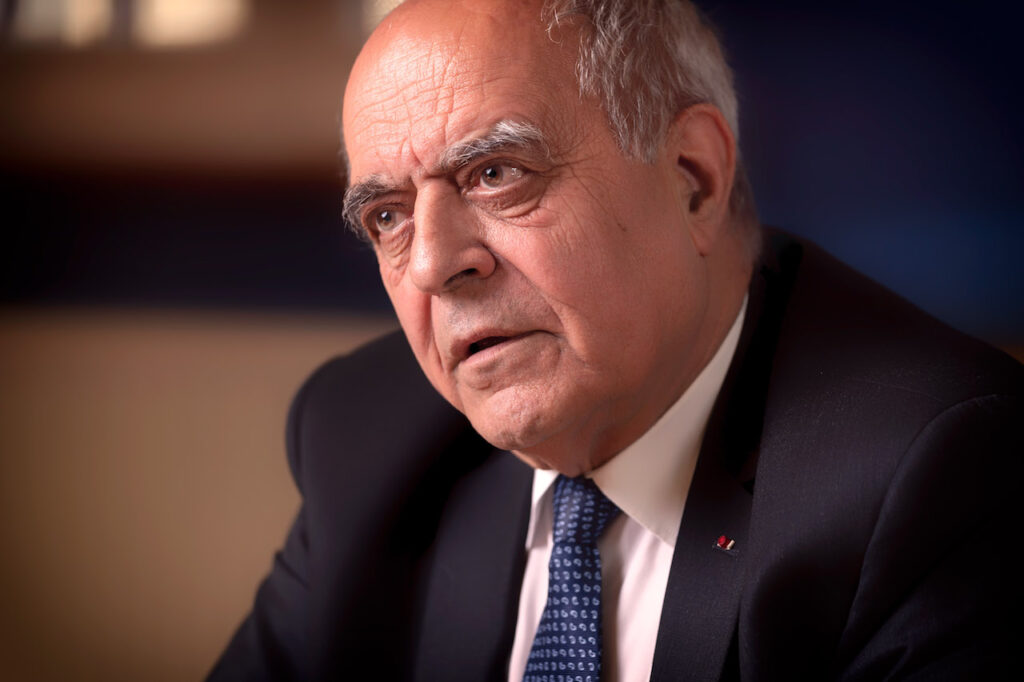
The major paradigm change, stands in the fact that contemporary era of digitalization and global networks, provide companies with access to immense volumes of data, and more than ever, oblige them to manage this data effectively to remain competitive. The use of information to support decision-making processes at an organization, enterprise, or individual level, facilitates the development of better and more innovative approaches that address the opportunities and risks that lie ahead in this rapidly evolving world.
The changes we are witnessing are a direct outcome of big data explosion. However, the situation that is emerging is not without issues, and organizations of all sizes face significant information management challenges. One of the fundamental problems that has become increasingly apparent in recent years is that the data humanity has access to, is not reliable; it is often incomplete, inaccurate, or defective. This represents a major challenge that plagues the production of intelligence, and there is an inherent need to clean, process, and assemble data in a way that responds to the needs of the operational leader.
While all types of intelligence are valuable, in any given situation, some information may be more valuable, accurate, and reliable than others.
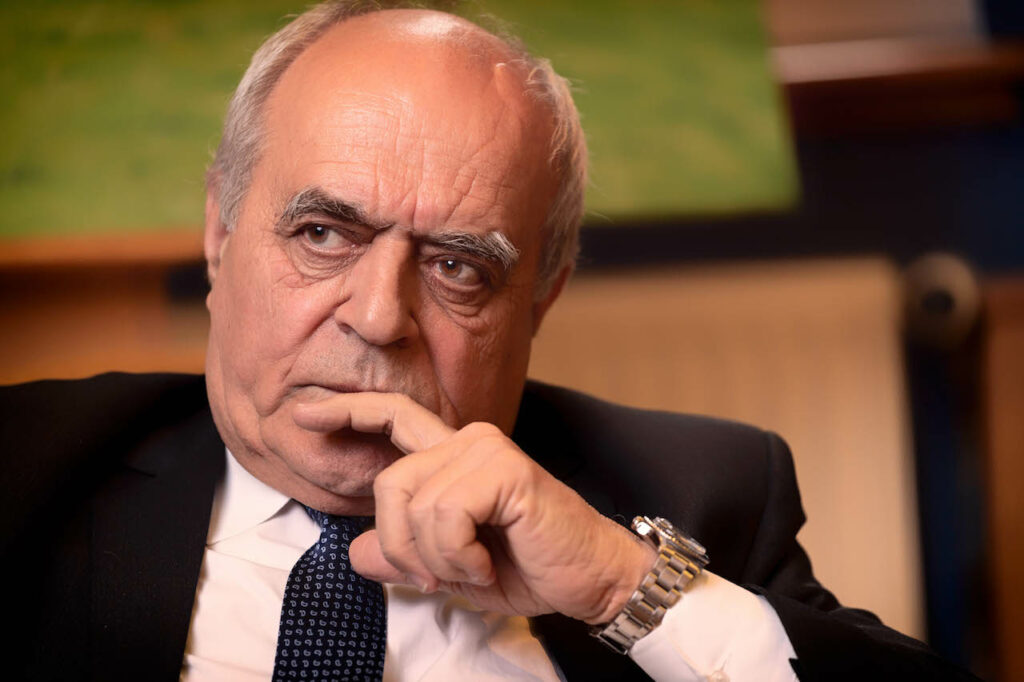
For this post, I had the privilege and honor of interviewing Mr. Alain Juillet (born September 14, 1942, in Vichy in Allier). President of the Club of Directors of Corporate Security (CDSE) between 2011 and 2017, prior to which he led many French and foreign companies. This “seeking head” used to be Director of Intelligence at the DGSE (Direction Générale de la Sécurité Exterieure) from 2002 to 2003 and held the function of Senior Manager, Economic Intelligence, attached to the Prime Minister between 2003 and 2009. Adviser to the Cabinet Orrick Rambaud Martel, he is also President of the Academy of Economic Intelligence.
I met Mr. Alain Juillet at the French “Garde Républicaine” in Paris. His reputation, his aura and his notoriety in the world of the big French intelligence, preceded this meeting to the point that it frightened me a little somewhat. At my pleasant surprise, we met with a very polite and discreet man. He exuded a quiet confidence and experienced demeanor. He answered the questions in a comfortable and relaxed fashion and shared fascinating stories that highlighted his dedication to serving his country in very different, yet important, roles.
Mr. Alain Juillet is a seasoned expert who has amassed significant experience as a Special Operations Executive. As such, I questioned him on his opinions on how security issues have evolved over the past 20 years. His poised and controlled response? The lack of understanding of economic power, reversing leadership values, and misinterpretation of human capabilities are the real threats we encounter in the modern world.
The fundamental aim of Competitive Intelligence (CI) should be to develop better methods of identifying relevant and reliable information sources. By dividing intelligence into types, analysts and commanders arrive at a better understanding of the value and accuracy of a given piece of information.
However, today, CI now needs to adequately address the additional issues that have emerged as a result of the information that proliferates on a social level.
In the connected world of the modern era, a significant amount of unreliable and inaccurate data is circulated.
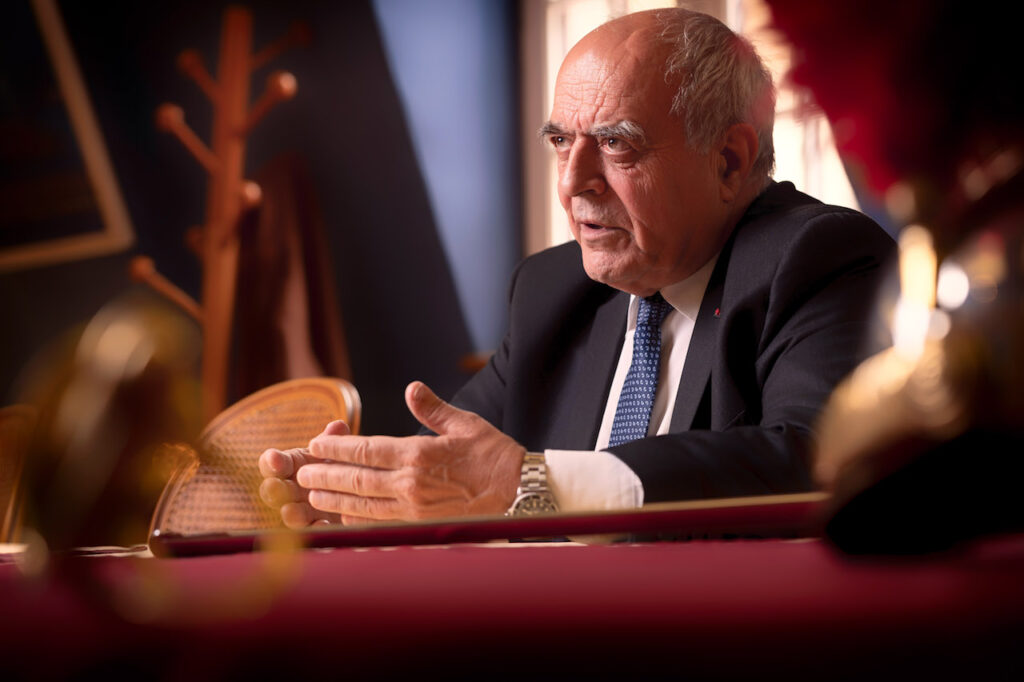
Some times ago, the amount of information that was stored in repositories typically doubled every 200 years. Today, it doubles daily.
A 2019th seven-year-old boy has access to more information than the Roman emperor had at the peak of Roman rule. That gives the capabilities we hold nowadays.
Today the average person in France uses their mobile phone about 200 times a day.
CI is now facing a new challenge that has emerged in response to the economic, social, and cultural development of territories.
Globalization, the spread of information and communication technologies, the development of formal and informal networks, the acceleration of economic change, the evolution of relationships between producers and suppliers, the prevalence of customer relationship management, and the reduction in product life cycles have led to permanent changes in the day-to-day management of enterprises.
Everyone has access to rough data, and there are no gatekeepers who monitor and control the data that is proliferated. The result? An excess of inaccurate, unreliable and unverifiable data.
The goal of many CI operations is to develop methods of addressing these issues so that anybody can use data at any time, transformed into information to make decisions with no barriers to access or understanding.
The explosion of accessible data worldwide, did not change the foundation of economic intelligence it has just changed the paradigm of its processing. As human being are no more able to process huge amount of data, they need to rely more that ever on machine learning and experts data analytics. Nevertheless, the “seeking heads” are still at the core of these processes. Indeed, the human brings through his experience and knowledge the full understanding of the eco-system, the heart of the war.
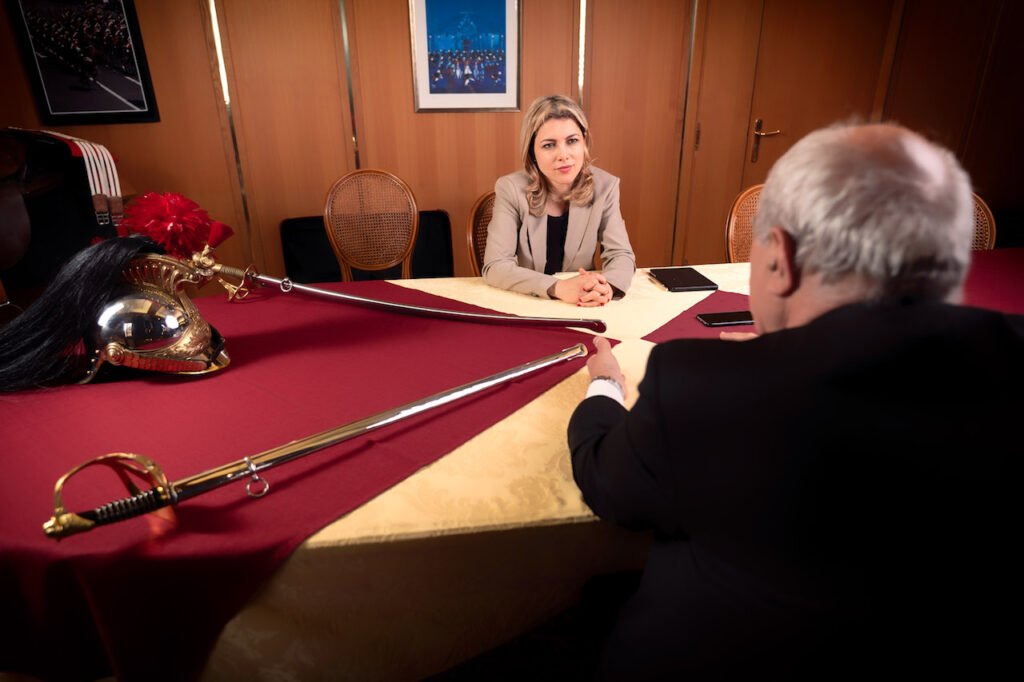
Companies are increasingly using CI to analyze competitor's strengths and weaknesses, to predict opportunities for market development, and to enhance their performances.
These analyses rely directly on organizations having access to reliable information that they can readily manipulate to facilitate fast and accurate decision-making. The scope of CI is significant, and it spans a wealth of fields ranging from technology, advertising, and consumer behavior through to legal conventions. However, there is an inherent lack of trust in the information that is available… and that issue needs to be addressed as a matter of priority.
Businesses and their leaders can choose to keep contributing to the problem or start building the solution. People confuse technical and economic potential. The most vital issue today is the social level of understanding. In today’s globally interconnected economy, companies cannot afford to build walls; they need to build bridges.
Full situational awareness includes developing insights into the current level of risk, the difficulties that lay out there, the support mechanisms that are available, the obstacles that may get in the way, and the potential exit solutions. Organizations that develop strong situational awareness are better placed to make the right decisions. Organizations that have poor situational awareness are on the brink of failure.
Mr. Alain Juillet informed us that the first thing an intelligence agent would do before entering the world of intelligence is to gather as much basic intelligence about themselves, their limits, their values, their proposals, their interests, and what weaknesses need to be addressed. The agent needs to figure out what information is required and who has access to that information. But building trust isn’t just common sense—it is an intricate process that involves becoming immersed within the culture in question and developing an in-depth understanding of the entire ecosystem of that organization or country.
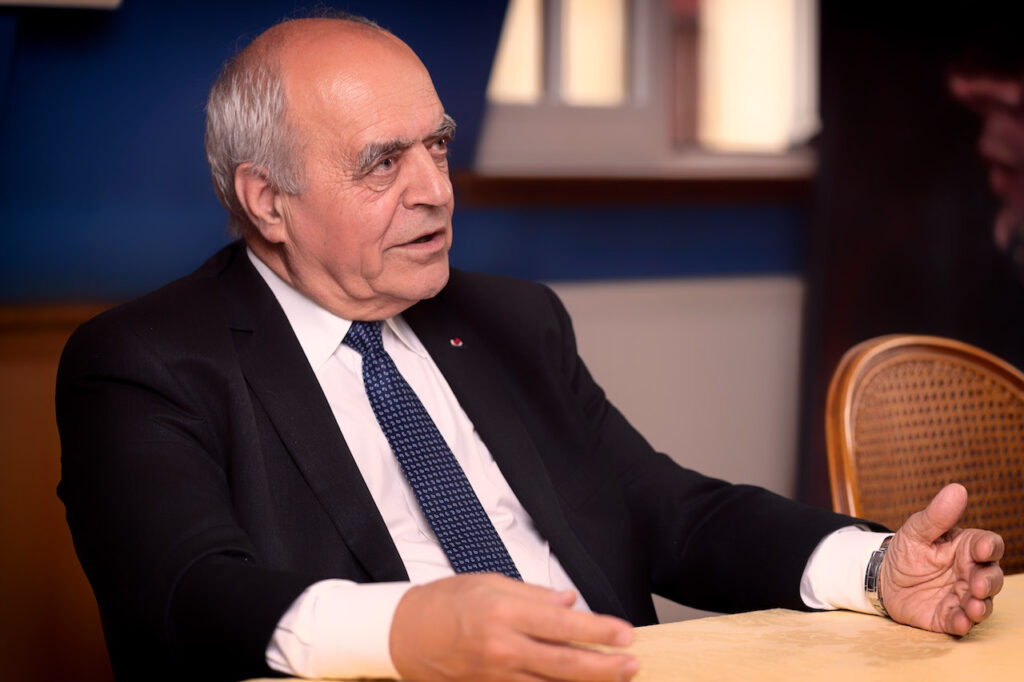
It is essential that intelligence agents build trust. This relies on their ability to communicate, build networks, remain flexible, put people at ease, establish reliability and credibility, and develop a strong level of self-awareness.
If agents lack the capacity to influence others, they will not have the ability to translate a vision into reality because it is not possible to achieve great things if one is working in isolation. Influencing strategy is a must.
Such an influence necessitates, one clear and understandable strategy, a smart prospective, a strong knowledge of the eco-system and associated environment, and robust allied networks (objective allies who have real reasons to join forces). No machine could understand it on its own. Human being and their “seeking heads” are the only one to ensure that effectiveness.
As such, Agents must form extensive international networks that evolve and develop on a continual basis.
Today, economic intelligence is a war that uses the means and techniques of intelligence to acquire the right information and engage in meaningful discussions with relevant parties throughout the world. Strategies of influence, and against all odds, relies on the Civil Society, that became the 4th power. It sets the rules and remains a source of strong constraints. It is a real producer of influence that plays a lot on culture.
In the competitive global landscape, organizations need to be as efficient as possible, and this relies on having access to reliable and extensive information. Beyond the ability of the engineer to invent something or account manager to sell, there is an obligation to use applied competitive intelligence. This provides decision makers with accurate and reliable information that they can exploit to seize opportunities, promote dialogue, and seek opportunities for openness.
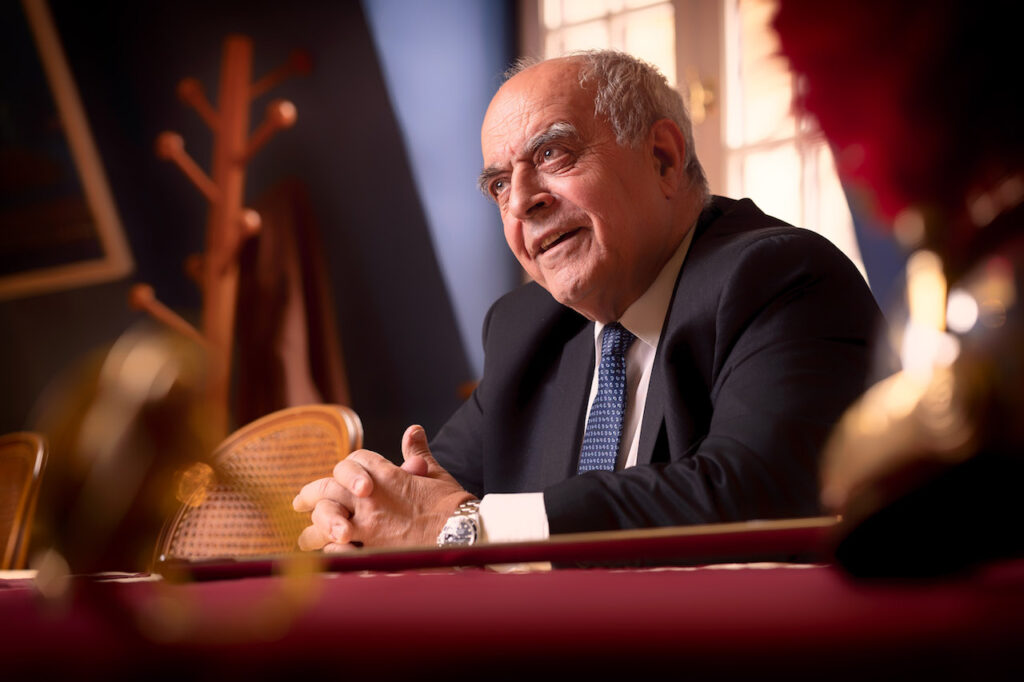
While most modern-day enterprises acknowledge and embrace the fundamental role that CI plays in securing a competitive advantage, the rapidly changing context represents a significant barrier that imposes major constraints on an organization’s ability to secure accurate data. As such, their ability to communicate effectively with relevant parties plays an integral role in their ultimate success.
For CI to be effective, it must reach the right people at the right time. It is also imperative that the right people are in decision-making roles; personnel who are knowledgeable, experienced, and in possession of a high degree of intuition.
The results of success governance today are not defined merely by potential and technology. Embedding competitive intelligence within an organization necessitates considerable training throughout the firm. Essentially, CI should become embedded within the culture. Technological capacity and access to information are no longer the most important characteristics of success since the transmission of commercial and private knowledge is no longer possible without securing a contribution from members of the public. If an organization is not prepared and guided to receive and process information effectively, it will ultimately fail.
Mr. Alain Juillet is one of our best example: He is at the origin of the “formalized” competitive intelligence in France. Being a professional from the intelligence services, he has been able to bring the institutional knowledge and his own experience to the benefits of the most famous French industries. Mr. Alain Juillet remains one of the only living witnesses of the surprising evolution of intelligence schemes. Intelligence is one of the oldest trades, which has gone through the years and changing ecosystems without suffering from Darwin Syndrom.
The secret key of this immunity lies in the preservation of the fundamentals of the profession: keep the human brain at heart of the system. The fabulous evolution of the technologies such as datamining or data analytics shall remain a technological arm with high add value. The etymology of machine learning and expert systems are “expertise” and “learning” … the panacea of human being.
Through our interview, Mr. Alain Juillet has demystified the myth of intelligence and broken the screed around it. While he preserved the intelligence services activities. Mr. Alain Juillet unlocked the methods and principles of intelligence for the benefits of competitive intelligence.
“Seeking heads” as per Alain Juillet profile, have this exceptional capacity to embrace all intelligence essentials: Understand & Influence the ecosystem politics or economics, manage the technologies, listen and capture the weak signals, anticipate future trends, feel and analyze the situation and restitute to C-Levels executives with their words and predispositions … for the most efficient decision taking.
The recent script of a movie (the wolf’s call) has beautifully revealed how human “sensibility” is fragile and powerful. Despite their potential weaknesses, machines have never replaced the golden ears in submarines, even though they overuse them.
That’s the reason why the competitiveness of industries still rely on Seeking heads.
Cheers!
Ana Paula Araujo MendesMr. Alain Juillet
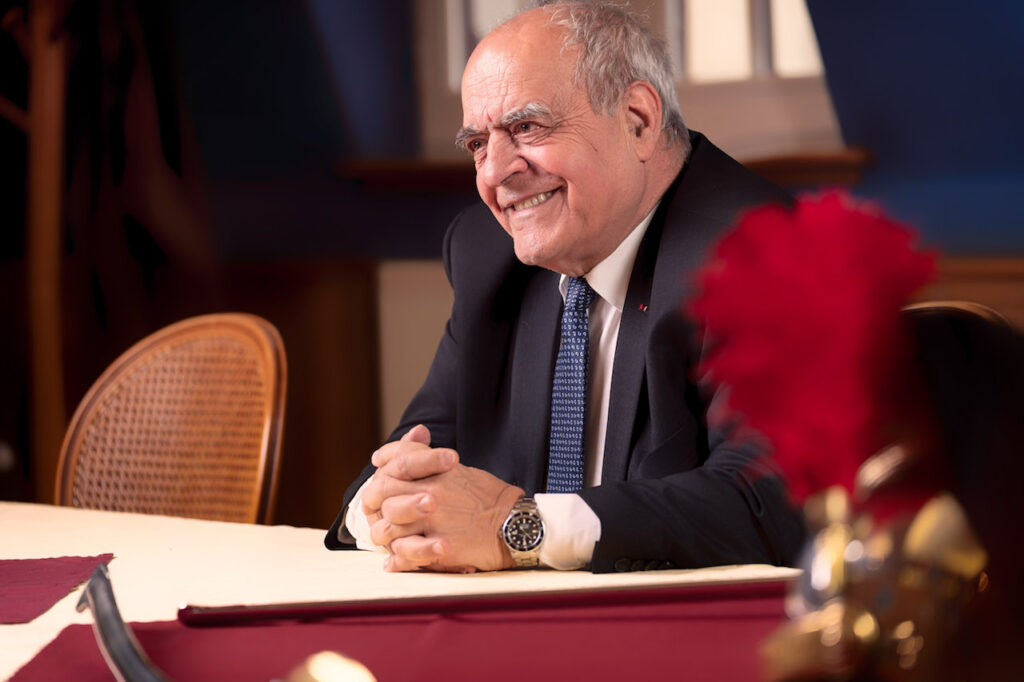
President of the Academy of Economic Intelligence.
Senior advisor for the law firm « Orrick Rambaud Martel » in Paris
For most of his carrier and until the end of May 2009, Alain Juillet was Senior Manager in charge of Economic Intelligen
ce within the SGDN (French General Secretariat of National Defense). He had held this position since his appointment in December 2003 by the President of the Republic Jacques Chirac following the report "Economic Intelligence, Competitiveness and Social Cohesion".
Senior Manager of Economic Intelligence within the SGDN from 2003 to 2009, his role was to coordinate the actions of the State and its administrations to help French companies face their international competitors.
Since 2011, he is President of the Club of Directors of Enterprise Security (CDSE) and directs the review Security & Strategy in the French documentation. In 2016, he becomes the president of the Academy of Economic Intelligence, an organization that aims to promote and disseminate business intelligence.
Education
He will attend part of his schooling in the United States including Stanford (Stanford Executive Program 88 / California) and will do an internship at Berkeley University.
In parallel with civil competences, Alain Juillet has acquired many experiences in the military field, also he is a paratrooper reserve colonel and a member of the Institute of Advanced Studies in National Defense (IHEDN).
Distinctions
Knight of the National Order of Merit (1987)
Officer of Agricultural Merit (1997)
Knight of Academic Palms (2000)
Knight of Arts and Letters (2006)
Commander of the Legion of Honor (2010)

Garde Républicaine for authorizing this interview
The Republican Guard is part of the French Gendarmerie. It is responsible for providing guards of honor for the State and security in the Paris area.
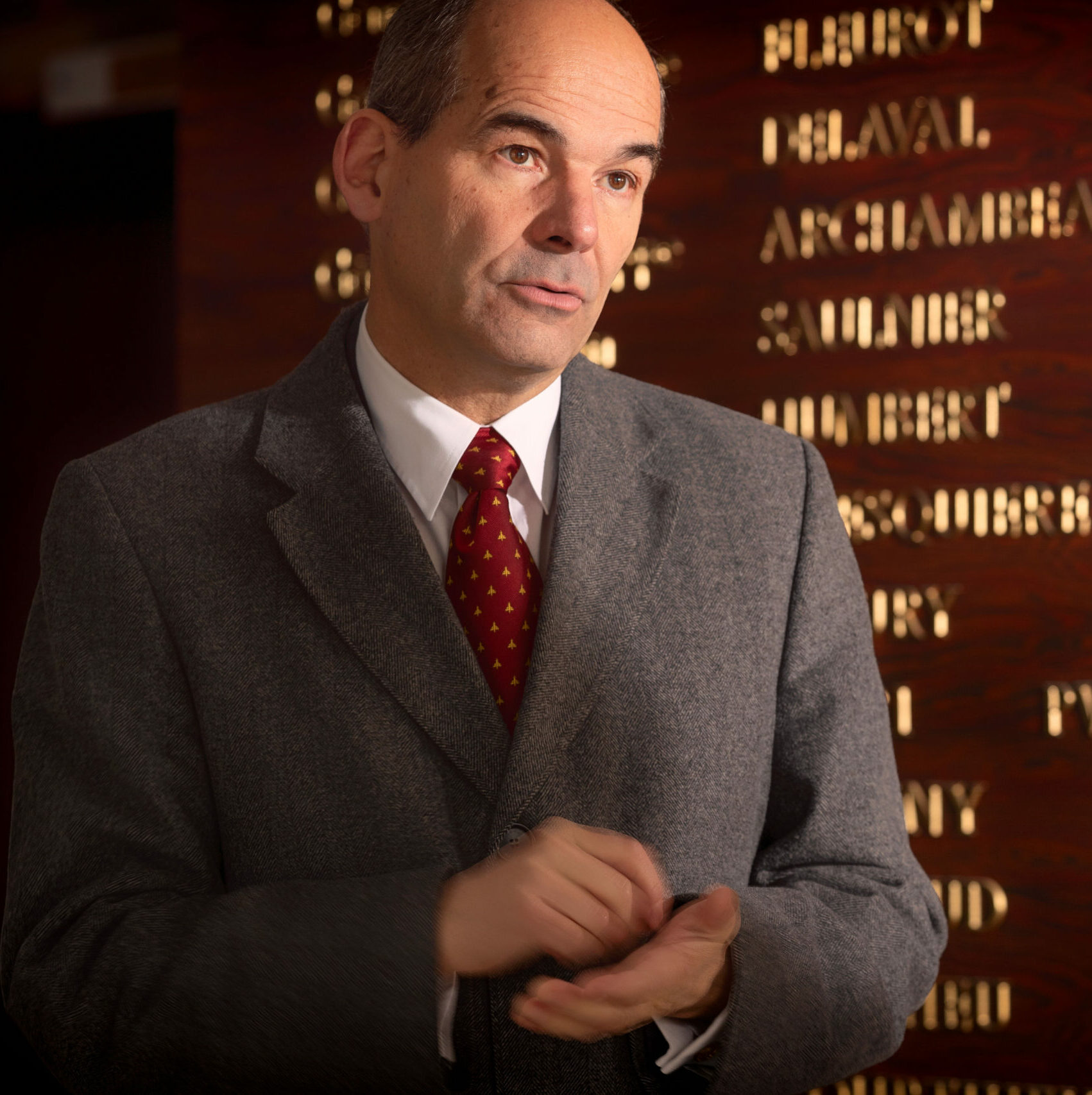
Aerospace and Defense Actors
General Patrick Charaix: Information Value and Quality on the Innovation Process Performance in a Collaborative Context
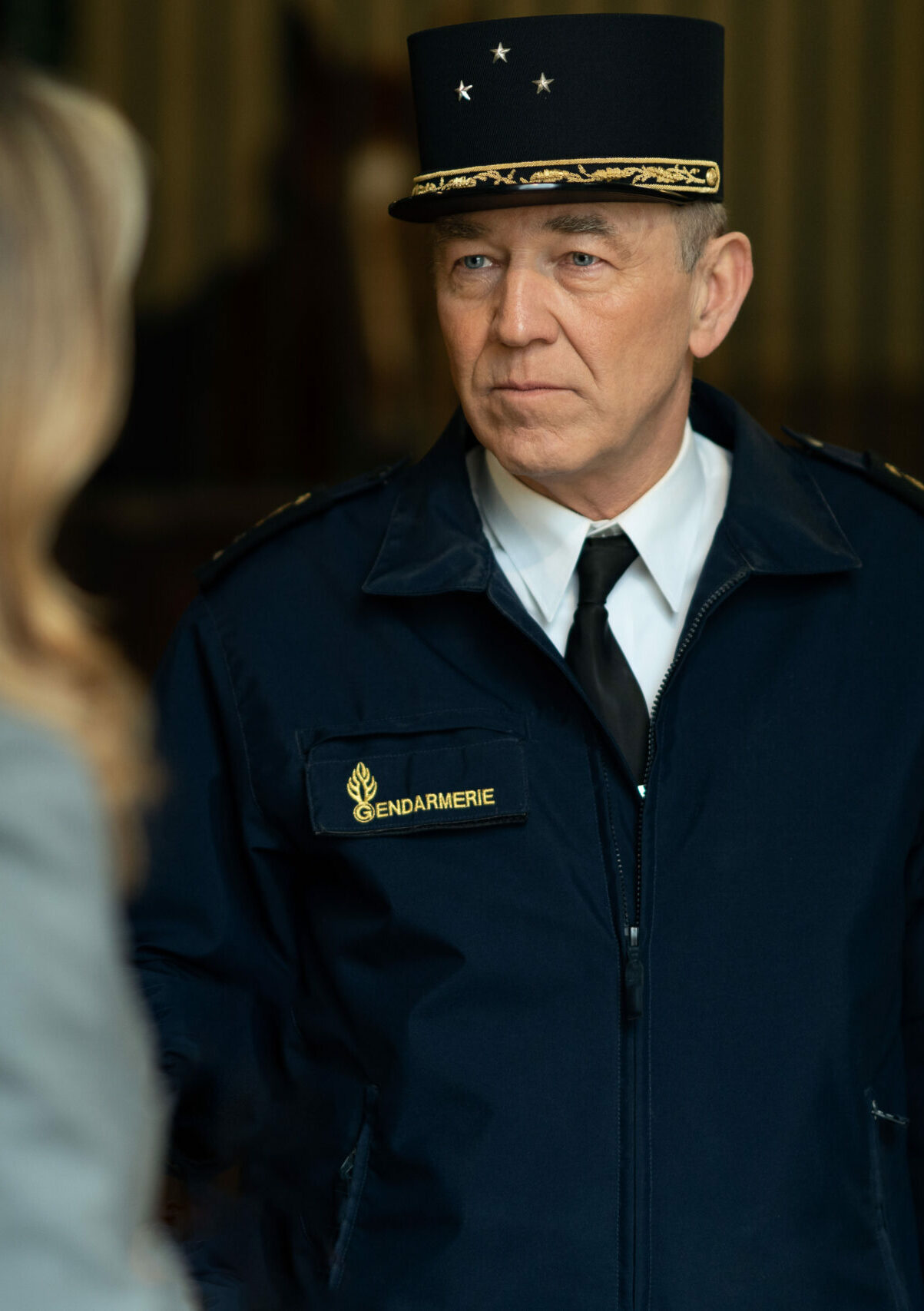
Aerospace and Defense Actors
General Damien STRIEBIG: Information Management - How Do You Prepare a Major unit for the Unpredictable
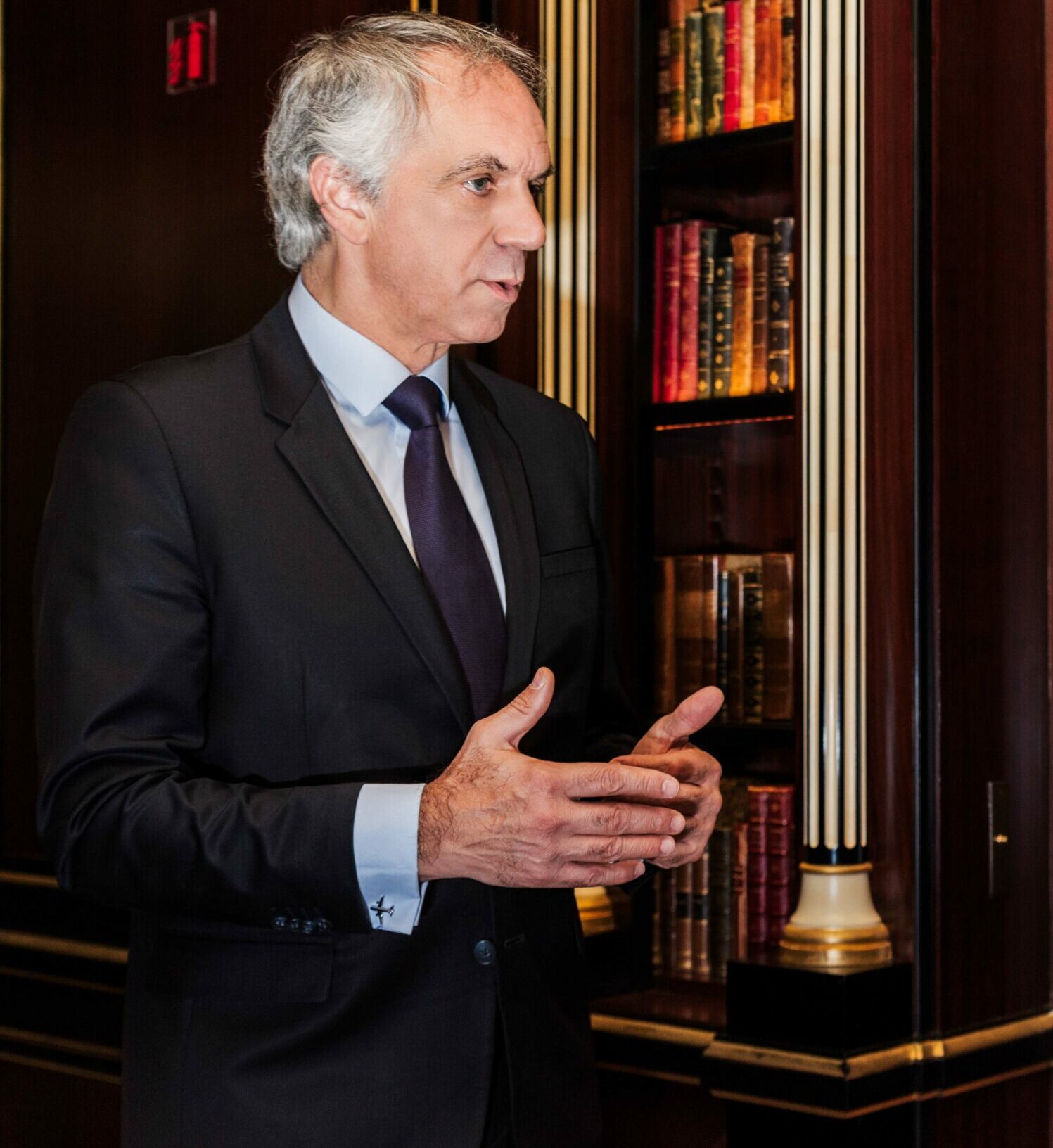
Aerospace and Defense Actors
Philippe Boissat - The future requires vision. Seeing through human eyes or satellites?
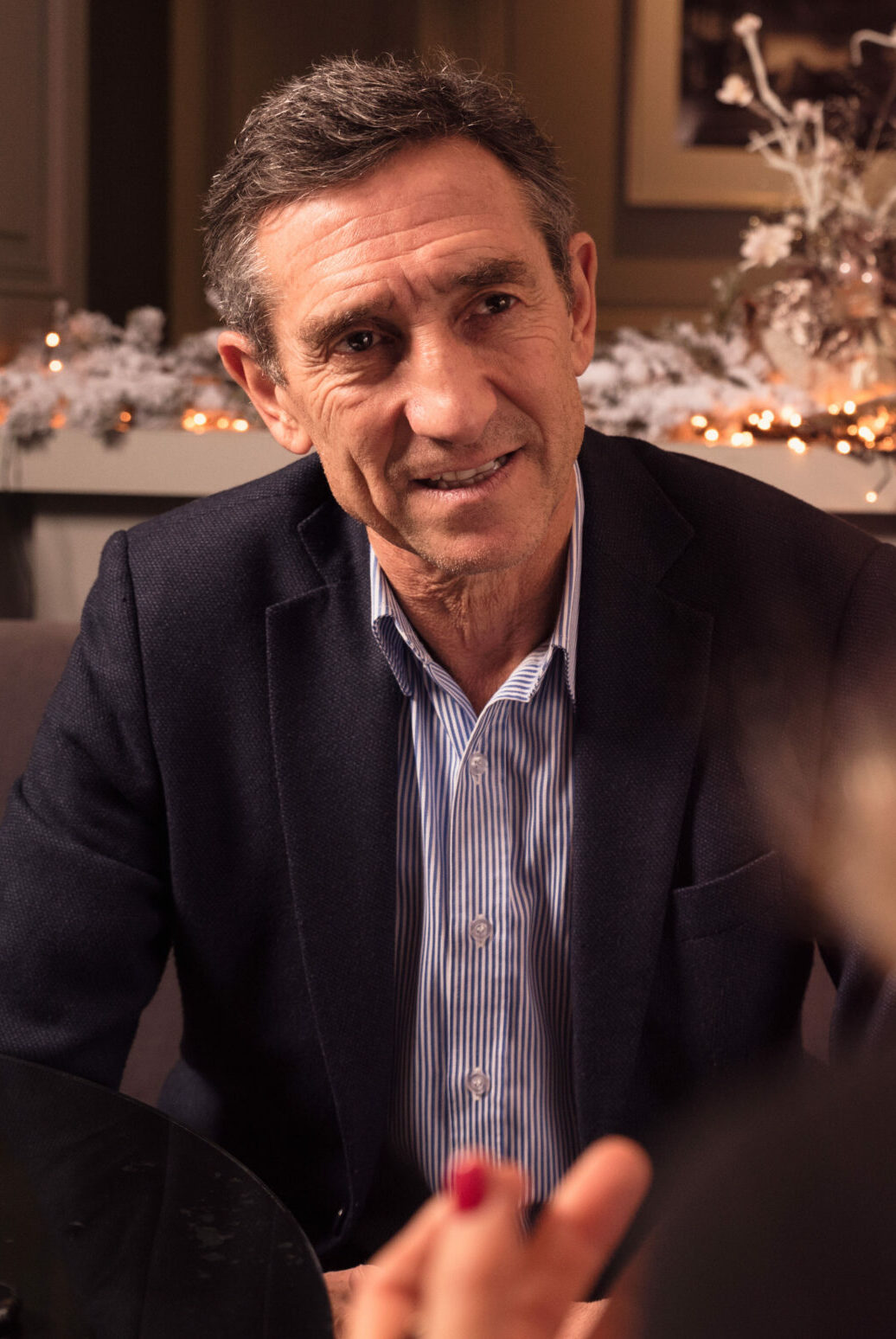
Aerospace and Defense Actors
Patrick Dutartre: Piloting your business with excellence. Leaders must inspire their employees.

Aerospace and Defense Actors
Michel Tognini: The Astronaut Secret. Strategy, Communication, and Time Management Are Key
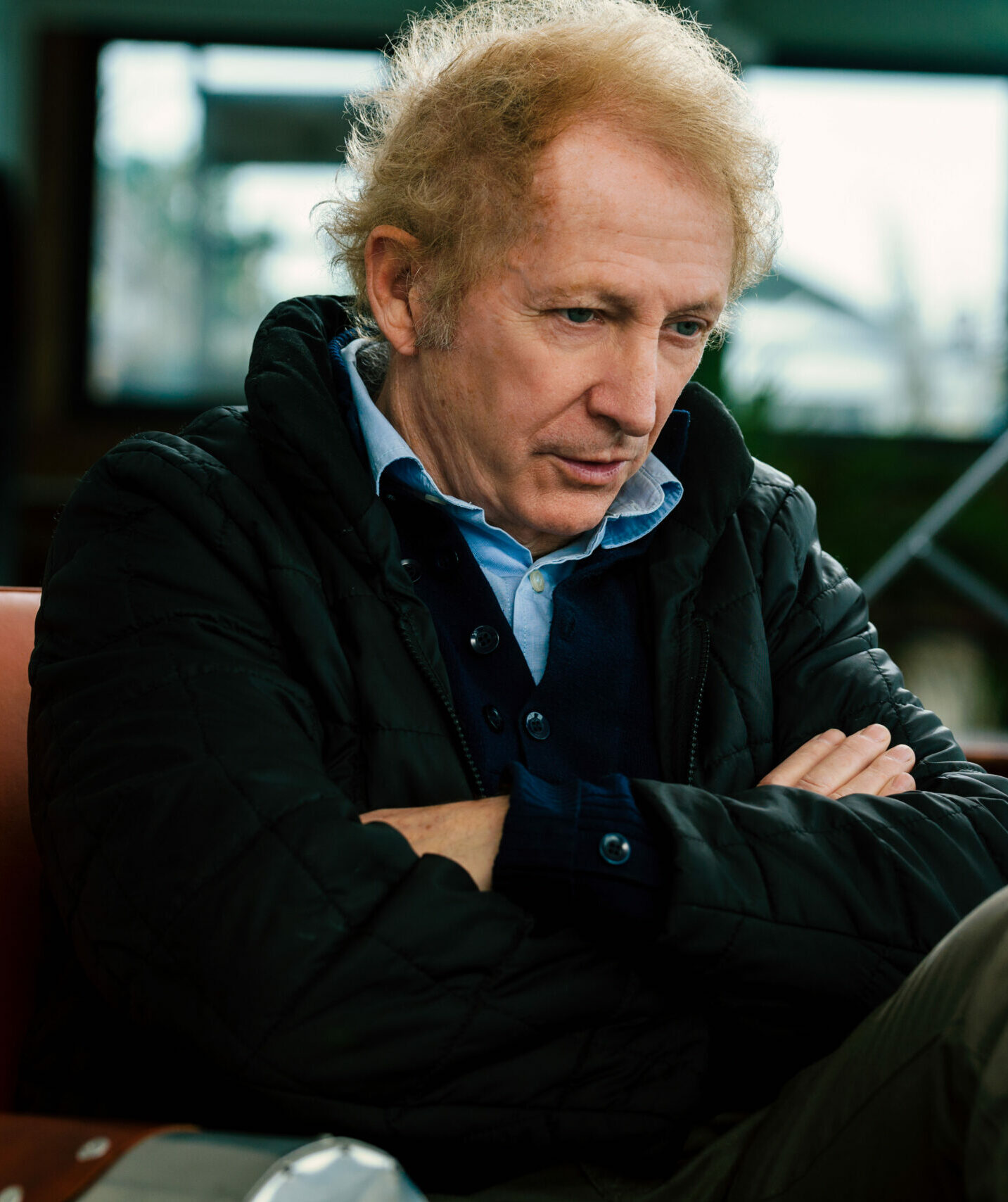
Aerospace and Defense Actors
Gérard Feldzer - Fighting for Peace; A World Without Frontiers
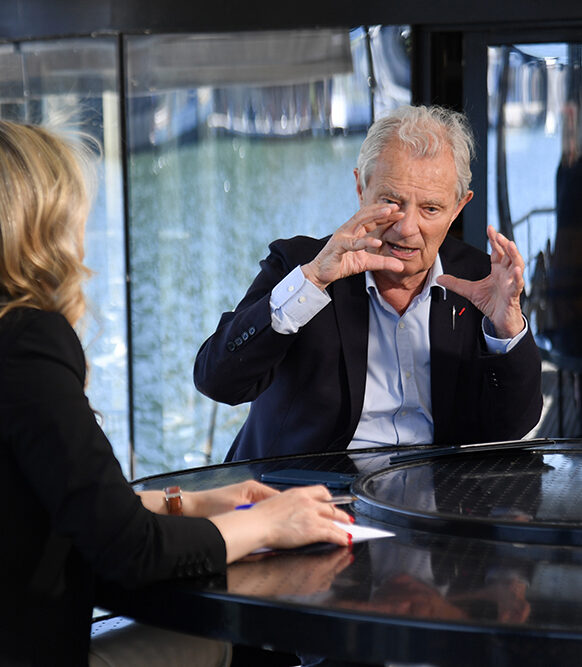
Aerospace and Defense Actors
Jacques Rougerie - Driving Innovation and Solutions to Global Crises

Aerospace and Defense Actors
Major General Dominique Arbiol on Preparing the Next Generation of French Air Force Officers: Building the Right Force for the Future Warfare
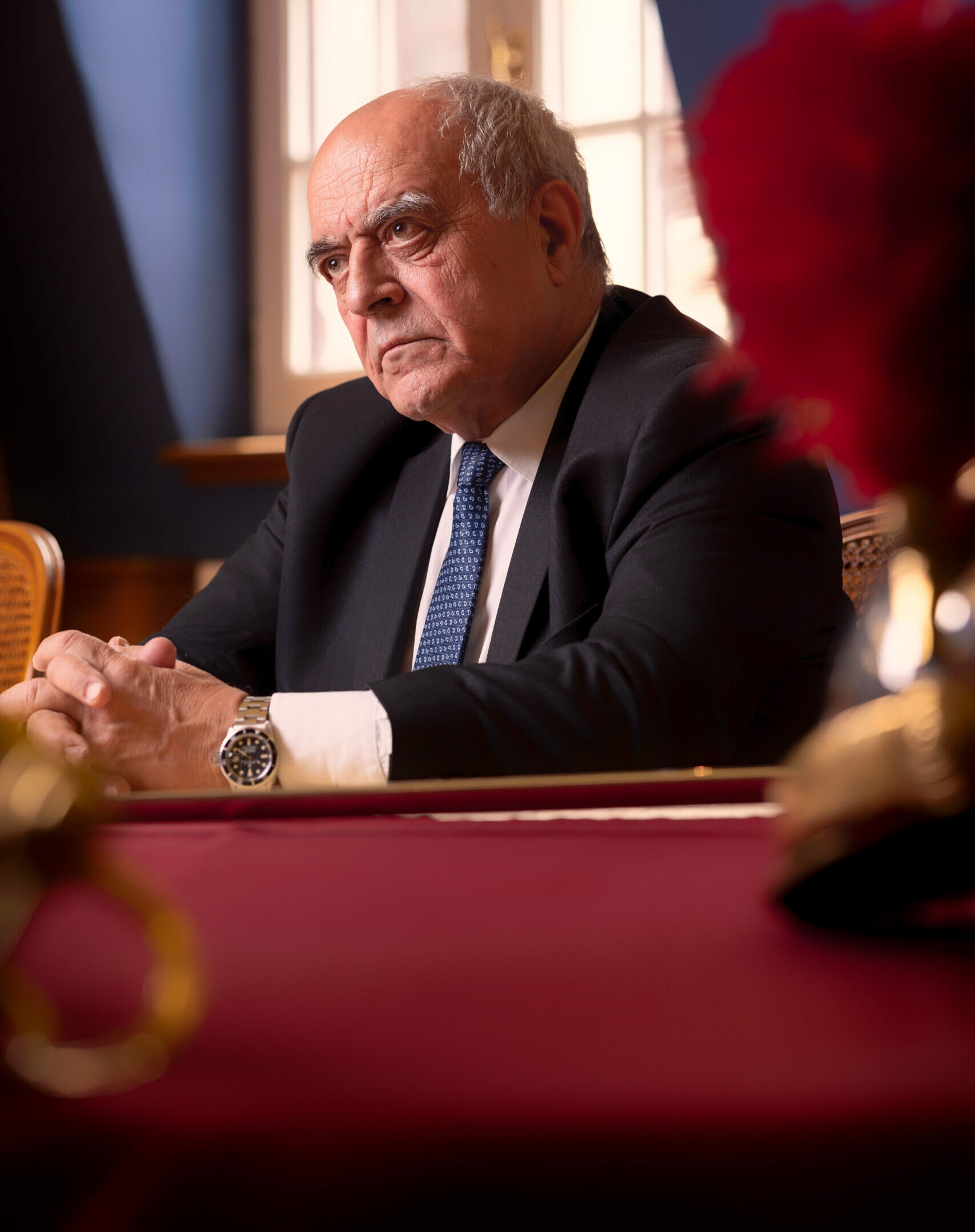
Aerospace and Defense Actors
Alain JUILLET: Competitive Intelligence “Seeking heads”

